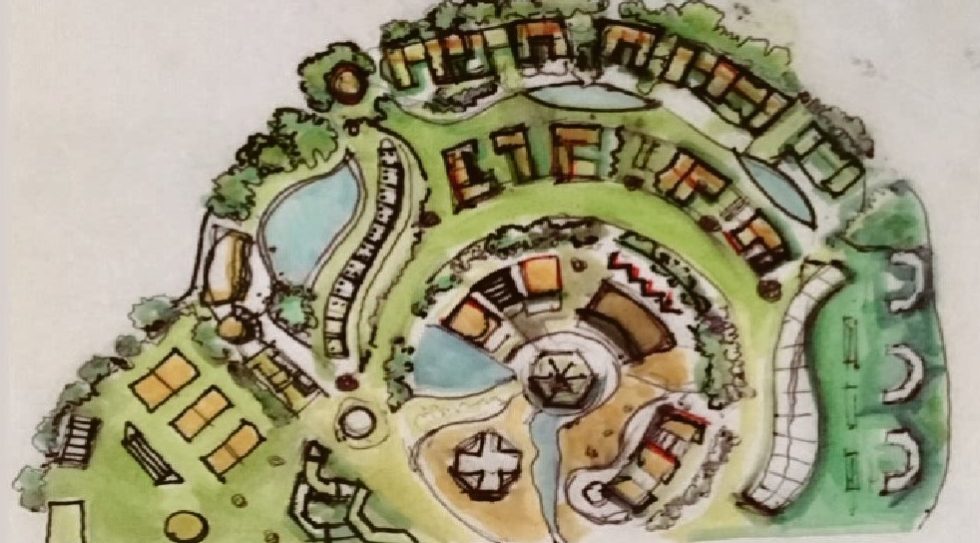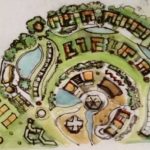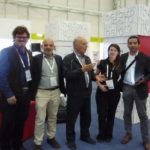Interview with Nigel Thomas, Architect – Member of the TTIA (14-March 2019)
Q: Mr. Thomas, can you describe for the layperson what is meant by your concept KIN Sustainable Communities?
A: KIN Sustainable Communities are envisaged as dynamic living, working-learning environments, cultivated within the “green” revolution as a new paradigm beyond the industrial or “fossil fuel” era. It is a comprehensive ‘umbrella’ concept for transforming each locale into a self-sustaining community; utilizing local resources, applying unique ways of incorporating local and global alliances os family or kinship, to intensify relations between the social and ecological, which of course has deep ancestral roots. The objective is to create powerful communities in which there is no separation of power and production which can lead to the advancement of society, reverse migration, etc.
Q. What makes KIN novel or distinct from other models?
A. The most exciting and unique aspects of KIN are the great potential for these powerful communities to gather, communicate deeply and participate in the great social realm like the collective call of the song; ‘Savannah Grass’ for example, along with the capacity to generate eco-employment in a multiplicity of ways. We design our communities around renewable energy: solar, wind, biomass/waste to energy, all controlled by the ‘smart grid’.
We’ve been fortunate to become part of a global KIN alliance in renewable energy. What is interesting is the organically connected cycles of power and production which can become very dynamic: renewable energy from sun and wind, steam from energy for hydroponic greenhouses for the production of vegetables, fruit, or the symbiosis of aquaponics with hydroponics; the cultivation of fish to assist in the growth of lettuce in the manner of the Aztecs for example. Eco-panels created locally for housing or clothing utilizing natural indigenous materials and designed for our climate or bio-region as opposed to importing from overseas. Many of these examples resonate like a feedback loop with our ancestral kin, only now harnessing 21st century “green” technology.
We are even exploring contemporary eco-finance for communities in public-private partnerships. Exploring debt forgiveness (1% per annum globally for our 100-year plan), nature swaps or bio-spheric bartering of climatic and carbon debts and credits, developing our own self governed ecological economic agency with alternative community banking for affordable housing with long-term tax incentives, cooperative leasing initially, incorporating wellness and health tourism elements. Other novel ideas include digital passports for nomadic kin with a yearning to travel, socialize and share their sustainable learning globally. Our communities would also include returning migrants and retirement villages with air b’n b and other alternatives for urban acceleration at all stages of life, further unique digital platforms; blockchain, bit-coin and alternative land ownership concepts for communities, potlatch and non-recourse gifts beyond individual modes.
Q. It sounds exciting but do you see any of these ideas flourishing in T&T for example?
A. Good question. While it is true that we are behind the curve in T&T as far as maximizing on the potential of the green’ revolution thus far, has historically focused on fossil fuels; oil, natural gas, which led to the false life and disparity, which is totally antithetical to the notion of kin which seeks to dynamically engage all sectors of society. However, we remember that the oil drum was transformed into the great music of the steel pan in our search for identity after the second world war and it is crucial to determine who we are in this ‘green’ industrial revolution (GIR) in order to sustain ourselves.
Our socio-ecological kinship is actively learning from global eco-finance models such as social capitalism in China. along with comprehensive sustainable cultures such as Japan and Denmark for example. We are not simply speaking about diversification around a one-dimensional economic idea in the form of fossil fuels, we are actively participating in a total new ecological paradigm to mitigate against climate change and engage our youth through a vast ambit of information, communication and ‘green’ technology to create affirmative projects for the sake of the future. Our society is deeply interconnected. We are ‘members of one another as kin, and therefore socially and culturally embedded beyond race, ethnicity or beliefs. Our power has always been in the realm of the social and the ecological in any event, so perhaps the moment is now to come down from the mountains and meet in the Savannah grass as kin.



